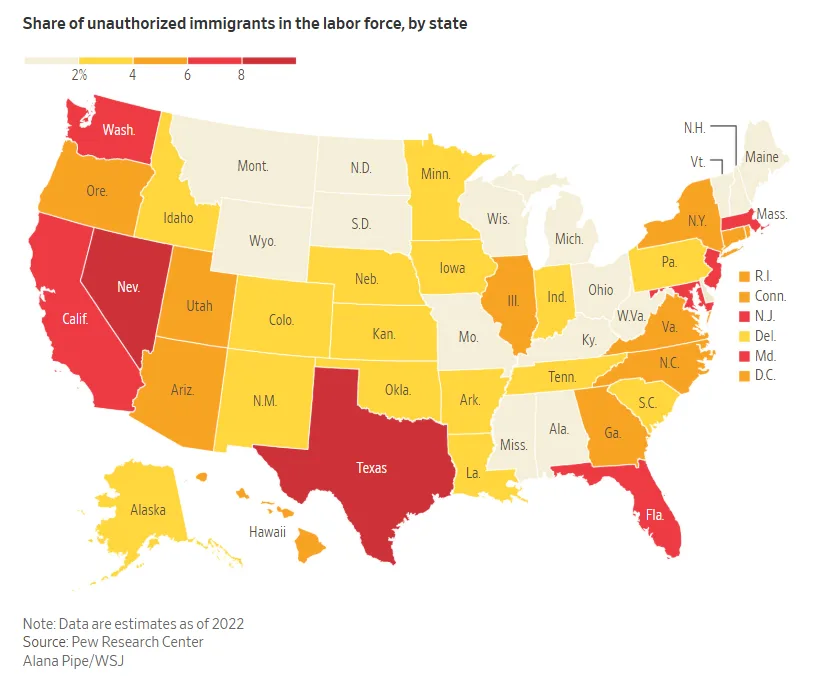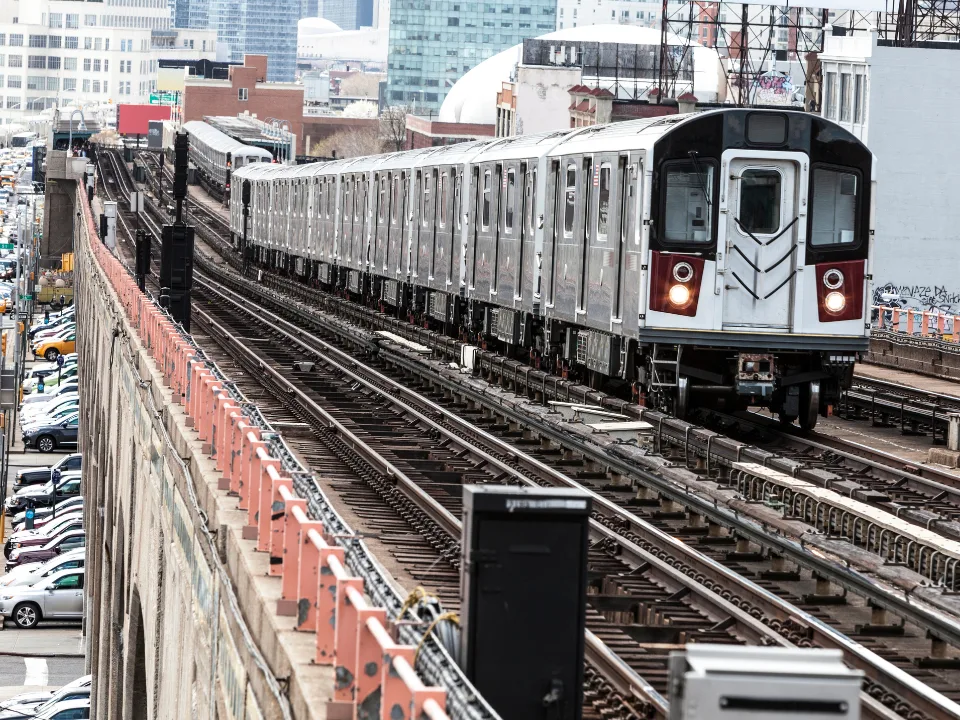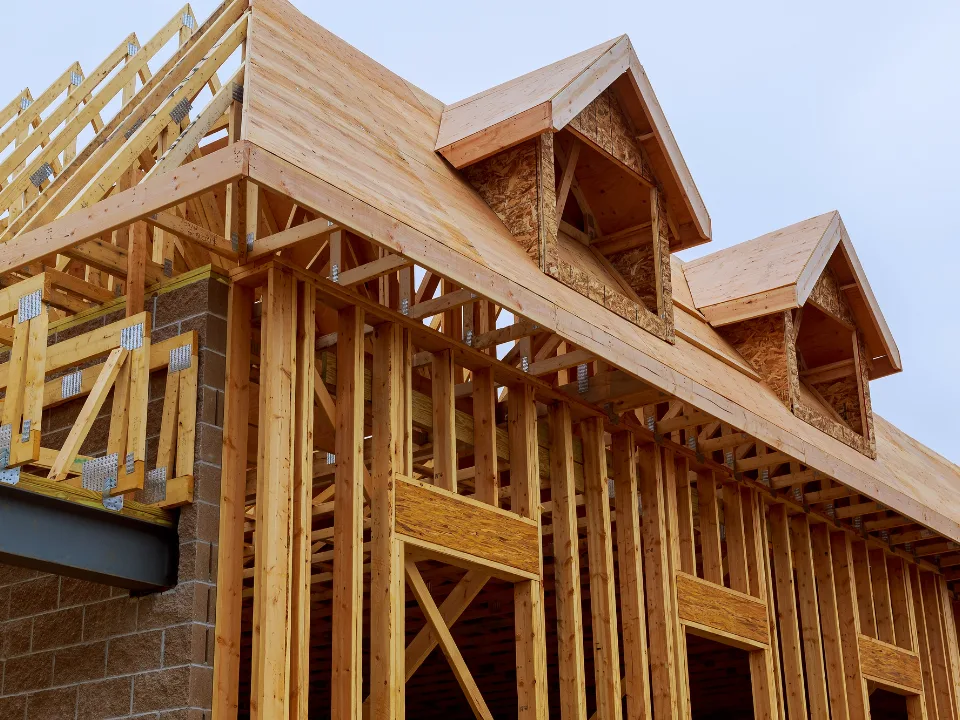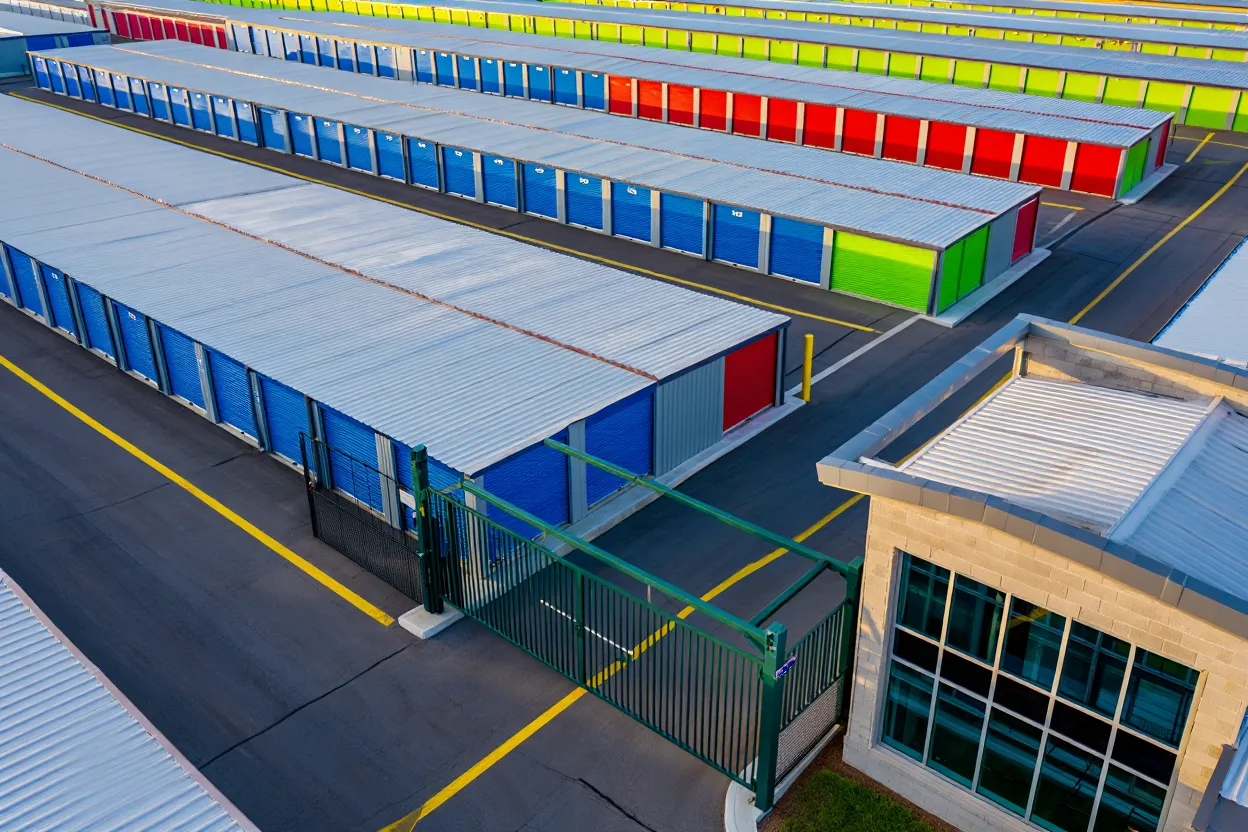- Immigrant labor, particularly undocumented workers, forms a crucial part of the US construction workforce, making deportation policies a major concern for the industry.
- Proposed tariffs on Canada and Mexico could significantly increase the cost of imported construction materials, exacerbating already high home prices.
- Builders are assessing strategies to adapt, but rising costs could further strain housing affordability amidst an ongoing worker shortage.
According to the WSJ, the US construction industry, a cornerstone of economic growth and urban development, is facing a potential crisis as proposed immigration and trade policies threaten its labor force and material supply chains.
Mass deportations of undocumented workers, who make up a significant share of construction jobs, coupled with tariffs on imported materials from Canada and Mexico, could lead to severe labor shortages and skyrocketing costs.
Housing affordability is already stretched, leaving builders and policymakers grappling with how to navigate the road ahead.
The Impact of Immigration Policy
In cities like McKinney, TX, where construction has fueled rapid growth, immigrant labor is the backbone of the industry. Nationally, immigrants constitute more than half of construction workers in several states, with undocumented workers making up an estimated 13% of the workforce.
The deportation of undocumented workers would create significant labor shortages, driving up wages and leaving many positions unfilled, especially in physically demanding roles that native-born workers often avoid.
Stan Marek, a Houston contractor, recalled losing workers after a federal immigration audit but noted they often ended up working for competitors instead of leaving the country. Marek, now an advocate for immigration reform, underscores the need for legal pathways for undocumented workers to maintain industry stability.
Tariffs: A Looming Threat
Tariffs on imported materials, such as Canadian softwood lumber, steel, cement, and gypsum, pose another challenge. The US imports a significant portion of these materials, and proposed tariffs of up to 25% could raise costs substantially.
For example, Canadian softwood lumber already carries a 14.54% tariff, and drywall prices have surged nearly 50% since 2020. Builders like Mike Forsum of Landsea Homes warn that further price hikes could destabilize supply chains and raise home prices during an affordability crisis.
A Market Already Under Pressure
The construction industry is still recovering from labor shortages dating back to the 2008 GFC, exacerbated by the pandemic’s supply chain disruptions. Despite a recent influx of immigrant workers, half of builders report difficulties filling skilled trade roles. Deportation policies would only worsen the situation, reducing capacity and potentially causing project delays.
Moreover, tariffs could further inflate the cost of building homes, which would likely be passed on to buyers. Eric Finnigan, a housing market analyst, points out that housing affordability is already stretched, with new tariffs adding significant pressure on prices.

Balancing Optimism and Concern
While the Trump administration’s deregulation promises have sparked optimism among builders, many are bracing for the challenges posed by immigration and trade policies.
Industry leaders like Michael Bellaman of the Associated Builders and Contractors believe deregulation could reduce costs. Still, builders like George Fuller, mayor of McKinney, emphasize the potential for significant short-term pain.
What’s Next?
The construction industry calls for pragmatic solutions, including immigration reform that provides legal pathways for undocumented workers and balanced trade policies that avoid excessive cost increases.
Without such measures, labor shortages and material cost hikes could hinder the industry’s recovery and strain housing affordability for years to come.
Get Smarter about what matters in CRE
Stay ahead of trends in commercial real estate with CRE Daily – the free newsletter delivering everything you need to start your day in just 5-minutes
















